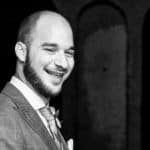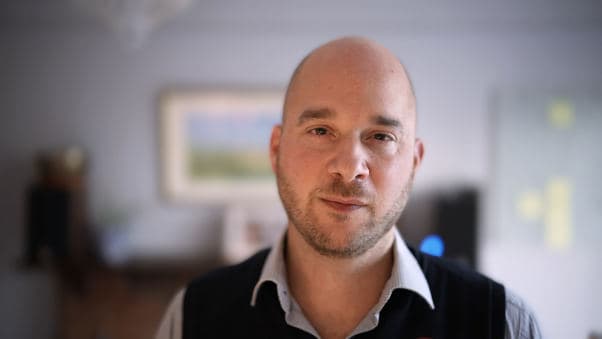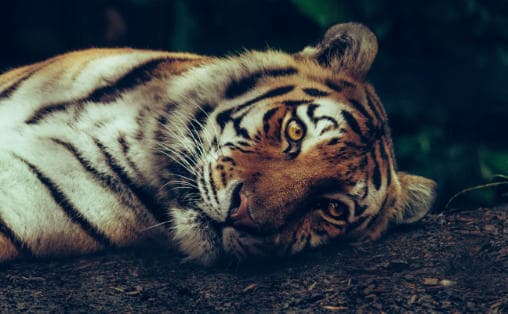Beliefs are everywhere. Whether we like it or not, they dictate the way we live and function. Beliefs dictate our view of ourselves, others around us and the world.
Behind every thought, emotion and behaviour we will most likely find a belief.
Join me in this episode to demystify beliefs. Understand
- how beliefs are created,
- where beliefs stem from and
- the types of beliefs we hold.
❤️ Support at: https://www.insidetreasures.com/donate
Episode Notes
Beliefs are part of our operating system. Understanding where they come from, how they are created and how they affect us is a crucial element to our work.
In this episode you will find out the difference between Facts and Beliefs. You will get empowered to create change and growth in your life. Where there were obstacles you will now see the way through.
This episode will show you how beliefs get in the way of your journey or how they are the wind in your sail. It will help you to navigate the waters of life. with more certainty and understanding of yourself.
After awareness, comes ownership. And then choice emerges. With choice there is power!
- 0:07 How beliefs show up
- 0:48 Intro
- 1:08 Facts, vs Beliefs: What are beliefs
- 2:45 Examples of Beliefs
- 3:47 Beliefs are everywhere!
- 5:04 Beliefs shape your life and reality
- 8:03 How are beliefs created?
- 9:03 We adopt the beliefs of others
- 9:38 Strong emotions create beliefs
- 9:54 The ABC Model
- 11:09 Taking ownership of our beliefs and letting go
- 13:23 Positive beliefs (Empowering beliefs), Negative, Limiting (Irrational beliefs)
- 14:36 Self judgement
- 16:30 In Conclusion
- 18:21 Outro
Transcript
00:07 I remember when I was a little boy that I used to have conversations in my mind, and then I would start sharing
things, continuing a conversation outwards, because I used to think that people could actually hear what I’m talking
about inside my mind. And soon after that, people used to be like, you come up with these random things. How is this
related with what has been going on? But it was because there were things that I was thinking, and it was based on
the belief that people could actually hear what I was thinking. I know that this might sound a little bit funny and a
little bit out there, but it’s how we operate.
00:40 It’s proving a point that belief often guides the way that we behave. Belief guides what we do. Welcome to another
episode from Inside Treasures.
00:51 My name is Ibis, and I love to challenge myself and those around me for the purpose of growth. This podcast is about
helping you to heal, to change, and to grow. This particular episode is all about belief.
01:03 I’m going to start diving into belief, and I’m going to spend a few episodes talking about belief. Before we jump
into beliefs, let me just briefly explain what is a belief? Belief is the feeling of being certain that something is
true. It’s a conviction.
01:16 It’s an internal way that we represent the world. We understand the world, and we believe that it’s true. Something
exists as true.
01:25 A belief is not a fact. Although it can be based on facts, it can feel factual. There’s plenty of references that we
have.
01:34 It’s not factual. I understand that this can feel a little bit paradoxical because we talked about beliefs and facts,
and we’re starting to get into that. So it’s like, then what’s the difference between a fact and a belief, since a
fact can support my belief? Well, facts are truthful events based on realities.
01:51 They’re observable. They tend to be universally true. They actually exist or have existed.
01:51 They’re scientific, they’re measurable. There’s something that is very specific, and it’s not cascading into the
realm of belief because we believe it’s the things that exist within our sphere of consciousness or in our
consciousness that disprove. That belief, in fact, cannot really be disproved or changed.
02:15 Beliefs are nothing more than a deeply held assumption about ourselves, about others, and about the world. The
confusion with beliefs comes from the fact that they really feel factual. A belief feels true because we build
references that support that belief, something known as confirmation bias.
02:33 Our brain keeps attracting evidence that supports what we believe and filters everything else out of the picture.
Every time we operate from that frame, we strengthen that belief. We got beliefs about everything ourselves, others,
and the world, and they play out in the background.
02:45 We usually tend to kind of identify beliefs as being negative or positive if they’re being empowering or
disempowering, and that is for us, to be able to just identify. A key distinction though to take away is that in one
situation a belief can actually be working against you although it’s a positive belief or the other way around but
usually that tends to be the exception to the rule. Some examples of beliefs is the fact that I’m lovable or I’m not
lovable I can’t or I can do something.
03:20 Nobody loves me, everyone is trying to scam me people are trying to hurt me, people love me. I love the world. The
world is a scary place.
03:29 Along with our personal beliefs we also have shared beliefs. Beliefs that we share amongst our peers whether that
depends on our school or our race or our religion their beliefs that we build collectively and that sometimes is
known as a collective unconscious and we’re sharing them. We might be sharing beliefs with our family.
03:46 What I want you to remember is that we hold beliefs about all areas of our lives. We hold beliefs about the future,
we hold beliefs about the past and the present about our finances, about our health, our spirituality, our religion,
our relationships. Everywhere beliefs show up, beliefs are triggered and they create an emotional response.
04:04 They create a response in which resonates us from within. It is the way that we create a generalized meaning about
specific contexts, about specific things in our lives the patterns that get created in our brain and they get
recognized and strengthened every time we buy into this belief every time we operate from that belief. Beliefs are
deeply connected with meaning.
04:29 It’s about meaning we create about things, about ourselves, about the world. Our brain creates a generalization and
it keeps fading on that belief. The thing to know is that beliefs aren’t always visible and sometimes it takes a lot
of work for them to be uncovered for us to see what’s behind that’s.
04:49 Been running the show. Sometimes we’re so locked up into a belief operating from that place but actually we’re unable
to see it. A lot of times they can feel silly, they can feel illogical but that doesn’t mean that they’re not there.
05:04 Beliefs shape our life and our reality. Beliefs shape our thoughts, our emotions and our actions. Thus our daily
experience of life our day to day, our moment to moment our every interaction within ourselves our relationship with
ourselves and our relationship with the world, with the people around us and that feeds up in every interaction
deep-seated beliefs which often go unrecognised and yet they constantly affect our lives.
05:04 Beliefs also function as a mirror. They show us our perspective and our perception. There will how you view the world
not is that it is not who or what you are but is the way that we approach the world the way that we create meaning
about the world.
05:45 In that sense, when we embody those beliefs, when we express ourselves through those beliefs what we’re doing is
essentially we’re defining ourselves. We define who we’re being and how we’re showing up in this world. We’re
defining the way that we express ourselves.
05:59 They can often show up as self-fulfilling prophecies. When this is like the software that is running within us things
will show up in our life that will prove that belief. We’ll kept meeting the same difficulties over and over again
and in that sense you can actually see that it’s a way for us to learn through life what it is, the way that has been
blocking us or sometimes we’ll get into it later.
06:24 It’s the way that it actually empowers us and pushes us forward and we’re going to uncover those beliefs and actually
strengthens ourselves to be more powerful consciously strengthening those beliefs. Thought such as why does this
always keep happening to me? Or why do I always keep doing this? Are often a result of certain belief and belief that
we have about ourselves and about the things but primarily our existence in the world. Belief, like I said, will
drive everything that you do.
06:52 It will drive your behaviour, your actions, your emotions, your thoughts, your stance, your attitude, your mindset.
The filters for reality and perception depending on our beliefs sometimes that can of course affect our mental
health. It can lead us into depression, it can lead us into anxiety it can lead us into being passive in life and
then of course that causes more suffering and it causes us to stand still and not be able to operate because that
belief keeps playing out in our minds whether we are aware of it or not.
07:24 Beliefs in general are more abstract. They can surface and they can become concrete but usually we experience them in
an abstract way. This is why they fit into multiple contexts and affect different areas of our lives.
07:36 We try to make sense in the world and we create generalizations our brain abstracts, things and that is in order to
make it easier for us. And then of course we become habitual creatures. We keep doing the same, the same, the same
going around in circles and not understanding what it is that is going on.
07:53 Remember that it’s an interpretation lens of how we filter the world, how we create meaning about the world. It’s
abstracting meaning. You might be wondering about how and when our beliefs formed.
08:07 Beliefs are primarily built in childhood but we also recreate them every single day, recreate them through new
experiences and we create new ones every single day and that is a key distinction because that is where we can
understand that actually we can change our beliefs. Some of our beliefs might be harder to change but there’s
something that we can change and learn to control and be more aware of. As we go about in life and we experience life
we keep trying to make sense of this world, sense of ourselves, sense of our space in the world, sense of the people
around us.
08:41 And by doing so, our mind does it automatically. We derive meaning. That’s why it’s really important to sense check
ourselves, to be more and more aware as much as we can.
08:50 So when these things are taking place, we’re able to interrupt them, intercept them and correct them so they can be
more factual. In order for us to feel better within ourselves, in order for us to be healthier within ourselves, we
get beliefs from the people around us, our parents, our careers, our teachers. And that happens because they be
things that they said and they sink in.
09:11 They be things that they do and they sink in. And we learn. We learn about ourselves through the references and the
places that we are.
09:19 So we absorb those beliefs that other people have coming from our family, coming from our culture. It just gets to
get in. And the younger we are, the more receptive we are to that.
09:29 And once that gets set in, then we begin to operate from that place. More and more and more beliefs can very easily
be created during a strong emotional moment. And that’s why they also create and produce an emotional reaction.
09:46 We get triggered afterwards. After a belief is been still, we get to respond depending on the trigger based on that
belief. Albert Ellis has been an inflation figure into psychology, into the school of rational emotive behaviour
therapy.
10:00 That’s why he created and he talked about a model called the ABC model. A stands for activating event, b for belief
and C for consequence. An activating event are the original event, but also the DayToday triggers the things that
happen that put us back into the belief, that put us back into operating from that space.
10:20 As I mentioned earlier, belief is built upon the interpretation of that event, of that trigger. It’s that meaning
that we’re creating and we keep reinforcing and consequences is what we get as a result of holding those beliefs and
our reactions to the triggering event. And belief, the triggering event, original event leaves an emotional memory
within us that often lacks context and details because as I said earlier, we keep abstracting.
10:47 Our mind keeps abstracting things. So that’s why a lot of times it’s very hard to find that reference and very hard
to go and see what it is that actually is causing me to behave in this way. But it is the way that we react.
10:59 We go on autopilot based on our beliefs. It hijacks the way that we behave. It hijacks who we are, the way that we
think and the way that we feel.
11:09 I want to put a little caveat here about the activating event, because a lot of times when we come from this space of
psychology, we can see that we might want to be willing to uncover the activating event for the purpose of healing,
for the purpose of nurturing, for the purpose of taking care of ourselves and understanding what happened then. But
the trap that I want to kind of highlight for you is that there’s something that caused us to believe what we
believe. And yes, it’s very common for us to look into that and to actually create more awareness.
11:28 But what I want you to understand is understanding what the belief is can be a lot of times more important than what
caused that belief to be created. And even then, for us to overcome that belief, we need to be able to come from new
references, to come from a new place. That is the only way to change it.
12:01 Because if I have a belief about myself that I’m not worthy, that I’m not good enough, I could look into my
childhood, I could look into the past into past relationships and try to understand why this is true. And again, I’m
supporting that belief. I’m giving more reason, more gravity to why this is true, why this is factual, why this is
important for me.
12:13 And it makes sense, without a doubt, there is true in that, that by shining some light into that, we can create
change power. Whenever we keep digging and digging and finding reasons, a lot of times we just keep getting more and
more stuck deeper into the mud. We just get stuck.
12:39 The way that I like to approach you personally is like, how is this manifesting? How is this creating a difference in
your life on a day to day? And yes, sometimes the triggering event, the activating event, might come up in that
moment, but whether it does or it doesn’t, it doesn’t really matter. It’s just understanding that this is the
software that is running and it needs updating and this is how we’re going to update it and this is what we need to
do in order to change it. So get that deeply within you that is not necessary to know the activating event and it’s
creating more clarity around that, around what the belief is.
13:14 But also it’s about how we choose to approach this belief and how we choose to change it. Earlier I talked about how
we differentiate beliefs between empowering and limiting, rational or irrational. And some of them, to be honest,
they’re pretty much in the gray zone.
13:32 It just depends. It depends in the situation and taken to the extreme, again, it’s out of context to be out of place.
It could be more helpful than harmful or it could be more harmful than helpful.
13:45 The best way to gauge and belief is by looking at the impact it’s creating in your life, the results that you’re
creating in your life. How is it that you’re behaving, how is it that you’re feeling? How is it thinking? What kind
of belief is actually driving that behaviour? It can be a belief that really helps us move forward, propel us. I can
do this.
14:05 Yes, this is going to be amazing or it can stop us dead in our tracks. I can’t do this. This is impossible.
14:10 This is too hard. These are things and thoughts that happen and play in our minds and they either cripple you or they
empower you. Belief doesn’t look to see if it’s good or bad.
14:23 We get to act it out as a rule. It’s like an embedded command in a computer system. We act from that place, good, bad
or neutral.
14:32 So it’s worth remembering that it affects our behaviour. Here’s another thing that I want you to catch and not miss.
So pay attention to this one.
14:42 The whole point is not to start categorizing beliefs and start judging our beliefs and studying, judging ourselves.
We think those beliefs. No, the point is to have the intention to witness them, to become more aware of them, to
become aware than when they’re playing out.
15:00 Often we speak them out in our minds and other people. We can tell whether they are rational or irrational. It’s
about not necessarily agreeing with them, but understanding that they’re taking place and that we’re fine with that.
15:03 We want to change it, for sure. We want to adapt our behaviour, but also we feel okay within ourselves. The point is
to experience what’s running under the surface.
15:25 And many times when I have sessions with people, they come up and they can hear their belief before they even speak
it or they start speaking it out. I encourage them. I tell them to open up, allow it to be expressed because it’s
playing out in the background.
15:39 It’s dictating who you being. So it’s not whether the belief is right or whether the belief is wrong. It’s not about
judgment.
15:39 It’s whether the beliefs are useful to us and propelling us forward towards our future, towards our present, with our
relationships, with the things that we wanted to create in the world. It’s whether they are aligned with our values,
with who we are, or whether they’re just creating blocks after blocks after blocks and not allowing us to live the
life that we truly want. That is the key differentiator for me.
15:39 It’s the thing that I believe, helping me get where I want it, where is it blocking my way. Hear it through. Analyze
the impact it has in your life.
16:18 But also be open, be playful with it. Because then you start to start to chip away on his power, on its presence, on
the grip that it has in you. In conclusion, beliefs are made up.
16:33 It’s the things that we consider as true and right for us. At times, it can be partially based on facts and a limited
view of reality. But they’re not completely factual.
16:43 There are exceptions to that belief, many of them. It’s just that our brain filters them out. Our beliefs are saved
by those around us, our carers and our experiences.
16:54 Beliefs are powerful. They’re really powerful. They get a hold on us.
16:57 They get a grip on us and when they go unchecked, they can run our lives to the best or they can ruin our lives. We
live under the messy or it can be the wind behind ourselves. We are not powerless against them, although at times
might feel like that.
17:15 Beliefs have strong emotion and emotion is energy. Emotion which makes us act in a certain way, they say. The way
that we view the world and the experiences we have in the world.
17:27 When working with clients, one of the most common things that occur is stumbling upon a limiting belief and creating
new empowering beliefs that we can leap from understanding how we operate can create a life changing experience in
different areas of our lives. In coaching, we analyse those beliefs to understand what drives our behaviour and what
stops us from achieving a different behaviour. It’s worth remembering that on our day to day beliefs go are not as
unspoken, the hidden.
17:58 Hidden behind the curtain, hidden underneath the surface. When we question ourselves, we allow them to come up to the
surface and we can then slowly unpack them and understand them more by shining the light on them. From that point, we
have a choice a choice to change.
18:16 We have turned the unconscious into conscious. I’m here to help you heal, change and grow. If there’s something that
resonated with you, something that you need help with, give me a shout on instagram @insidetreasures
18:23 If you found any of these messages useful and insightful, share them with your friends, the loved ones that you have.
Allow them messages and wisdom to spread to those around you because you never know how that will impact their life.
Thank you for tuning in to another episode from Inside Treasures.
18:52 My name is Vibes and until next time, my friends, let peace guide your life. Let love guide your heart and reason
guide your thoughts.




